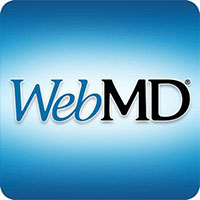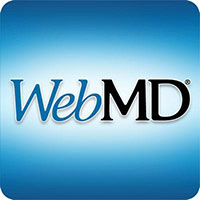The ‘New Normal’ Is Not Temporary
What your doctor is reading on Medscape.com:
MAY 15, 2020 — It is a widely embraced concept in oncology, both by those of us who treat cancer and those who live through its often debilitating treatments: the new normal. It describes the reality after cancer and how a life once imagined (and lived) has been permanently changed.
For my patients who have completed what I hope to be curative treatments, I talk about this shift cautiously. They are not the people they were before cancer; priorities have shifted and relationships have changed. Some of my patients grow closer to their loved ones and others grow apart. Some have become frustrated because things they once did with ease are now challenging, whether it be running, working, or concentrating. I try my best to prepare them for a life that, while not “back to normal,” can be pretty great if given time. In fact, I often say that recovering from chemotherapy can take up to a year before someone feels anything resembling who they were before cancer.
This lived experience can be even more dramatic for those with metastatic cancer, who constantly need to shift their expectations, goals, and outlook as they walk a path that few of their peers will ever truly understand.
Having spoken to hundreds of cancer patients over decades, I thought I understood this. In truth, it’s taken a global pandemic for me to truly appreciate this concept. And it worries me that this paradigm has not been discussed very much in the news media, where the focus has been on “opening up the economy.” Those who say we aren’t ready point to the lack of testing nationally, the lack of personnel for contact tracing, and in some areas, the growing numbers of infections. Those who say we must open back up point to the economic devastation and the loss of personal liberty that has resulted from mandated stay-at-home orders.
This disconnect has me worried about something altogether different: our expectations. I’m only now realizing that opening up businesses and lifting shelter-in-place restrictions aren’t going to bring back the lives we all enjoyed before the pandemic. It’s going to be very different. A new normal is going to set in for all of us.
Continued
Up to this point, I’ve put away my suits in favor of scrubs during clinic, I wear masks when I’m out and about, and I’ve stayed home for the longest stretch of time in my academic career. I’ve taken up rotations on the inpatient service for the first time in two decades and embraced telehealth as a routine part of outpatient care.
And yet throughout, I have assumed that all of this was temporary, that once the pandemic was “over” I would simply resume my normal routine. I’m now realizing that this assumption is very wrong. Flattening the curve has not meant that this pandemic is over. Normalcy is not happening.
I see it in my 17-year-old daughter who is having a hard time dealing with the premature end of her senior year and with it the cancellation of prom and graduation. I see it in my partner who has been furloughed from his job in pediatrics. I see it in my mom who has had to cancel cruises and international trips that she was very much looking forward to.
Even as some states have started their phased openings, there isn’t anything normal about it. Retail stores contend with physical distancing regulations and crowd controls, salons operate with masks on their barbers, and restaurants struggle to continue on with a skeleton crew for curbside pickup. We are opening back up in a society that has been devastated financially.
I wonder whether I will ever sit in a crowded auditorium at an ASCO annual meeting again. Or enjoy a night out at the movies with my kids. Or a celebratory holiday dinner with my colleagues at a restaurant.
Professionally, I worry about what this new normal means for us as cancer specialists. Tina Rizack, MD, an oncologist colleague from Massachusetts, summed up what I think many of us are feeling: “I think medicine is going to be hit very hard. People haven’t been coming in for health maintenance visits and they haven’t been getting screened for cancer. We are about to see people presenting with late-stage cancers due to delays in care, and I don’t think this is going to be limited to oncology. We are going to see people with more advanced disease, whether it be strokes or heart attacks, coming in too late. It’s happening now and I fear it’s not going to stop.”
Continued
As I ponder the new normal, I wonder whether anything good will come of it. Personally, I’ve appreciated being home with my kids, something I realize I missed out on in traveling for work. Dr Rizack pointed out what she hopes will be a much larger contribution to our society: compassion.
“Before the pandemic, there was an anonymity in our society,” she told me. “We wore headphones on the subway, looking down at our smartphones. We walked past neighbors without acknowledging them. I think now we’ve realized collectively just how important connection is, especially for us healthcare workers. Hopefully this translates into more moments of kindness, connectedness, and the experience of having been seen and heard—that yes, your voice and your life do indeed count.”
Don S. Dizon, MD, is an oncologist who specializes in women’s cancers. He is the director of women’s cancers at Lifespan Cancer Institute and director of medical oncology at Rhode Island Hospital.





cheap canadian drugs – fda approved online pharmacies canadian xanax
onions dark web [url=https://world-darknet.com/ ]darknet markets [/url] dark web website
darknet markets 2023 dark market link darknet drug store
darknet links deep web sites black internet
darknet sites darknet drug market deep dark web
darknet market lists dark web link deep web search
darknet market lists darknet drugs darknet websites